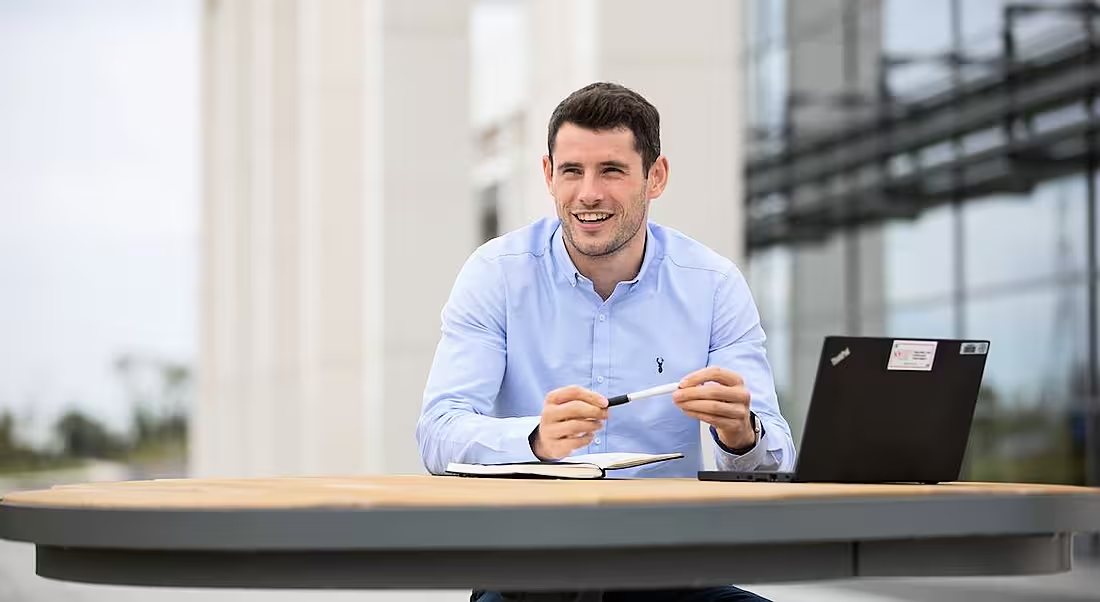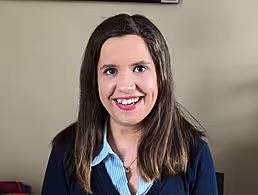Donal Keogan, a downstream-manufacturing scientist at BMS, shares how he carries his skills from the field into his daily work.
What are the skills and traits someone working in biopharma needs? Here, downstream-manufacturing science and technology scientist at BMS, Donal Keogan, gives us an insight.
Keogan studied medicinal chemistry at college and did his PhD in inorganic chemistry and antibacterial agents. His inquisitive nature balanced with project management skills and team sports have helped him get the most out of his career so far.
‘I understand the fulfilment that you can get when a group of people work together to successfully achieve a common goal’
– DONAL KEOGAN
What drew you to this career area?
Ever since I was young I loved science. I also was fascinated with the treatment of different diseases and how the medicines work. This led me to study medicinal chemistry in college, followed by a PhD in inorganic chemistry which primarily was centred on development of antibacterial agents to help patients prevail over serious diseases. The biopharmaceutical area is an appropriate fit for my inquisitive nature.
What’s the best thing about working in biopharma?
I think the variety of tasks that are performed from day to day is something that keeps this role very interesting. Being involved in different studies also allows you to get experience in a number of different areas and develop a diverse set of skills. I also like the close relationship that we have with the manufacturing plant and the opportunity that arises from being involved in problem-solving on the manufacturing floor.
What’s the most exciting development you’ve witnessed in the sector since you started working in it?
The biopharmaceutical industry is rapidly evolving, which offers huge opportunity. The technology being developed is very exciting. One element that I find fascinating is the area of continuous bioprocessing with some elements very well defined, but other areas much more complex, which presents its own challenge.
Another area which is exciting is the use of cell and gene therapies for treating human diseases. Cell-based therapies are emerging as a promising strategy for cancer, while AAV (adeno-associated virus) vectors have taken centre stage as a gene delivery vehicle for potential gene therapy for several human diseases.
What aspect of your job at BMS have you struggled to get to grips with?
There were many aspects at the start which I struggled with, primarily learning the intricate details of the new manufacturing process. There have since been a number of changes implemented, so trying to keep on top of all these can present its own challenges.
Learning the new skills of downstream also presented its own challenges at first, but it has been very enjoyable earning these new techniques.
What’s been the hardest thing you’ve had to face in your career, and how did you overcome it?
One of the hardest things I have had to face in my career to date is learning how to juggle multiple different elements of different projects. This skill of project management is one which needs constant refining. It is a very important skill however, as it can be applied to many areas.
If you had the power to change anything within the STEM sector, what would that be?
I think a lot of excellent work has been done in promotion of the STEM sector as a career option, and I would love to see this continue. Science Week works towards highlighting and further promoting these career pathways.
I think emphasis of STEM in Ireland and how lucky we are to have such brilliant opportunities on our doorstep would help encourage students to consider the STEM sector when choosing college courses. More opportunities for students to experience the industry at an earlier point in their education might prove beneficial in attracting them to the sector also.
Which of your personality traits makes you best suited to your job and this sector?
Some of my personal traits that have helped me in my job are problem-solving, resilience, multitasking, communication and decision making under pressure.
Is there something in your personal life that helps you you in your job?
I love sport and I like to play a number of different team sports. I think this is something which has stood to me. I have developed good communication skills and built strong relationships with members of different teams. I understand the fulfilment that you can get when a group of people work together to successfully achieve a common goal.
How do you make connections with others in the STEM community?
I have maintained contact with many of my friends from college who are all working in different roles within the STEM sector. I feel this has been very beneficial in keeping me informed about what else is happening within and beyond my own discipline.
Has mentorship or coaching been important in your career?
Mentoring and coaching have been very important in my career to date, and I believe they always will be important. I would be of the opinion that you can learn something new every single day. I have been lucky enough to work with some amazing people who have inspired me. I am hugely grateful for that.
What advice would you give to someone thinking about a career in your area?
The advice I would give someone thinking of a career in this area is to try and get some experience of the role, be it either through a structured programme like a graduate programme or even through a placement with college. You will find out what you like about the area and often, more importantly, what areas are not suited to you.
It will also allow you to build relationships for the future. Work in biopharmaceuticals can be fast paced and challenging but it is hugely rewarding. It is hugely gratifying and inspiring to know that the work we do really makes a difference to the lives of patients around the world.




